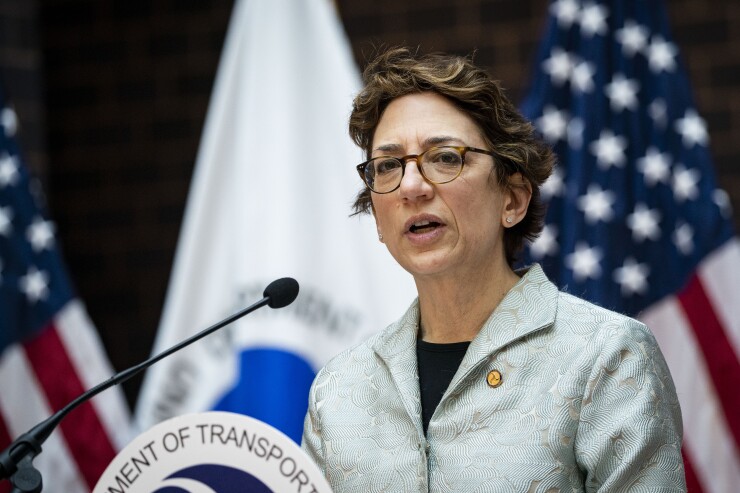The money marks the largest federal transportation grant in American history and will allow construction to begin as soon as this month on the long-delayed project, considered one of the most complex and important in the Northeast.
"This time it's real," said Senate Majority Leader Chuck Schumer, D-N.Y., one of many officials gathered Monday for a ceremony to sign the Full Funding Grant Agreement for the rail tunnel project between New York and New Jersey. "All systems go. No turning back. Locked in."
The federal support totals nearly $12 billion, or 70% of the $16.1 billion price tag. That's up from an original federal pledge of 50%. The remaining 30% will be covered by New York, New Jersey and the Port Authority of New York and New Jersey.
The Full Funding Grant Agreement, through the Federal Transit Administration's Capital Investments Grants program, totals just under $6.9 billion, marking the largest grant ever signed by the FTA, according to the White House. The Department of Transportation separately approved a trio of loans through the Build America Bureau that totals $4.1 billion. The loans, which are Railroad Rehabilitation and Improvement Financing, or RRIF loans, represent the largest aggregate loan the USDOT has provided through the RRIF program, according to the bistate Gateway Development Commission, which is overseeing the project.

The signing of the FFGA is the "biggest milestone of them all," said DOT Deputy Secretary Polly Trottenberg. Like other officials, Trottenberg praised President Joe Biden for bringing the project over the finish line. Biden "really has taken this project to heart," she said. "It's his determination that this country can still do big things."
The project includes a new double-track tunnel between the Bergen Palisades in New Jersey and Manhattan, as well as renovation of the North River Tunnel, which was flooded and damaged in 2012 by Superstorm Sandy. The project also includes the creation of a concrete casing at Hudson Yards to allow the new tunnel to connect to New York-Penn Station.
Work is expected to be completed in 2038 and ultimately provide four rail tunnels for Amtrak and NJ Transit trains. New York Gov. Kathy Hochul said the project "is on the scale of the Erie Canal," and proves that "this region still has the boldness the audacity of visions where others do not."
After years of delay, federal funds began to flow in early 2023, when the administration
The full





